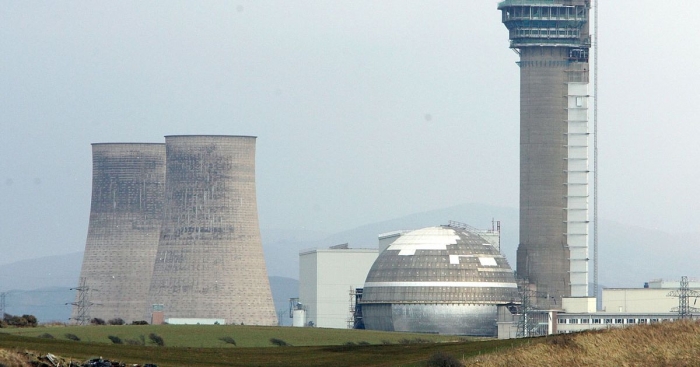UK nuclear regulator faces skills shortage after Brexit

Responsibilities currently held by Euratom, the pan-European nuclear regulator, are to be transferred to the ONR after the UK leaves the EU, including the “safeguards” regime required under international rules to prevent misuse of fissile materials.
The average age of the ONR’s 384 “technical specialists”, including nuclear inspectors, is 48, and almost half its overall workforce is over 50 — forcing the agency to confront “brain drain” as long-serving staff retire.
Jenifer Baxter, head of energy at the Institution of Mechanical Engineers, said there was a limited pool of qualified inspectors from which to recruit and not enough time to train new inspectors before the UK leaves the EU in 2019.
“It takes five years to train an inspector and they need a lot more people so it’s going to take a lot longer than 20 months to put a new regime in place,” she said.
The skills shortage will be seized on by nuclear industry leaders and a growing cross-party group of MPs urging the UK government to seek a deal for Britain to remain part of Euratom. This would require Theresa May, UK prime minister, to drop her “red line” ruling out any role for the European Court of Justice in UK affairs after Brexit.
In a joint article for the Sunday Telegraph, Conservative MP Ed Vaizey and Labour MP Rachel Reeves said staying in Euratom was “the common sense thing to do”.
Legislation to set up a new nuclear safeguards regime was one of eight Brexit-related bills included in last month’s Queen’s Speech, highlighting its status among the most pressing and thorny issues to be resolved during the Brexit process.
But finding enough personnel to monitor UK nuclear facilities, including one of the world’s biggest stockpiles of nuclear materials at Sellafield in Cumbria, is among the main obstacles to putting a new regime in place.
Ian Salter, partner at Burges Salmon, the law firm, said any weakening in UK safeguards after leaving Euratom could disrupt trade in nuclear materials and technology — ranging from reactor parts to medical isotopes used in cancer treatments — with countries with strict non-proliferation rules, including the US.
“There is a real possibility that nuclear trade could be interrupted or even stopped until suitable measures are put in place,” he said
In its latest annual corporate plan, the ONR said that even before the additional demands created by Brexit, it was having to “recruit nuclear specialists in increasing numbers to replace retiring staff”.
The ONR’s resources are already under strain from the UK government’s push to build a new generation of nuclear power stations while decommissioning the existing fleet of ageing reactors.
ONR inspectors are currently overseeing construction of the first new UK nuclear plant for two decades at Hinkley Point in Somerset, and reviewing plans for further reactors.
The ONR said it was “paying significant attention” to tackling the “thinning of our capability and experience”. A spokesman told the Financial Times that staff development was being strengthened and new talent was being recruited from other “high hazard industries” and from overseas.
Mike Clancy, general secretary of the Prospect labour union, said the demographic “cliff-edge” that the ONR was facing exposed “a worrying absence of strategic thinking at high levels” about the risks of Brexit to an industry which provides a fifth of UK electricity.
“There are real questions about whether the UK has the domestic capacity to take on the role of Euratom,” he added.
A spokesman for the Department for Business, Energy and Industrial Strategy said the government was “absolutely committed to the highest standards of nuclear safety, safeguards and support for the industry”.















































